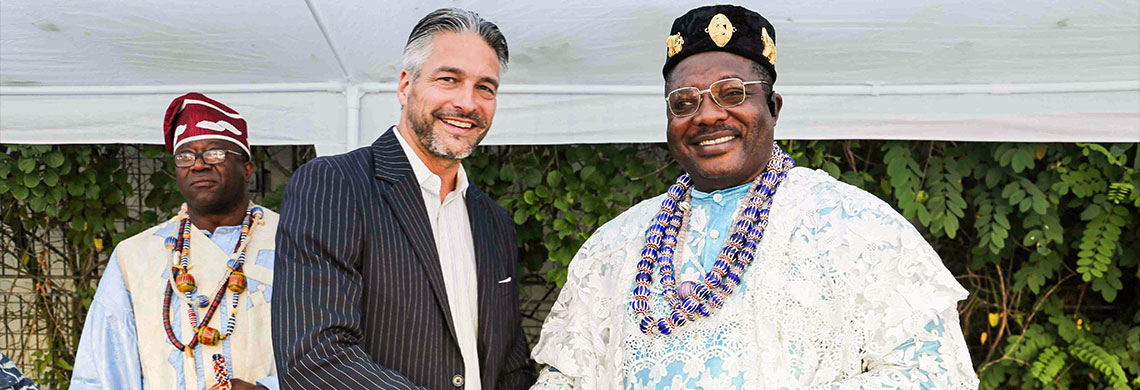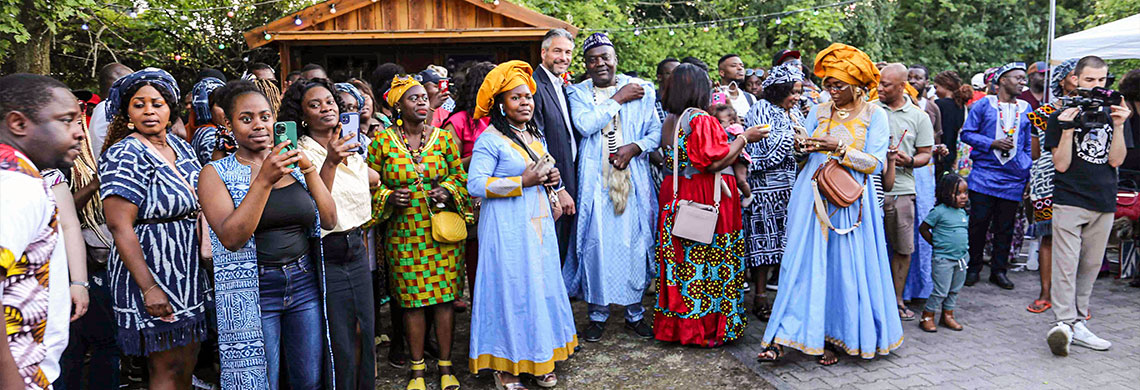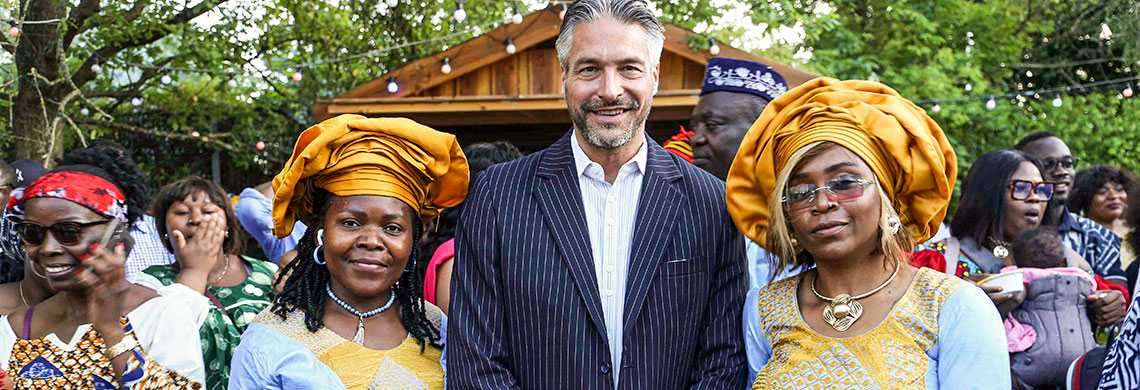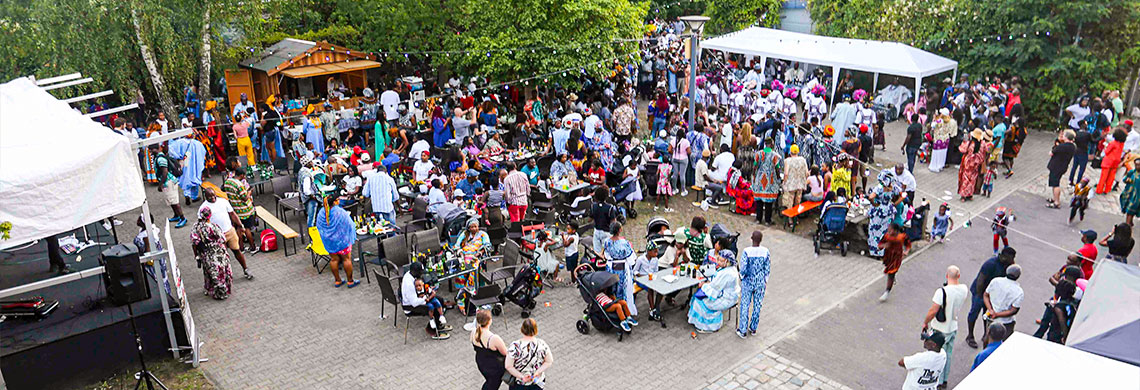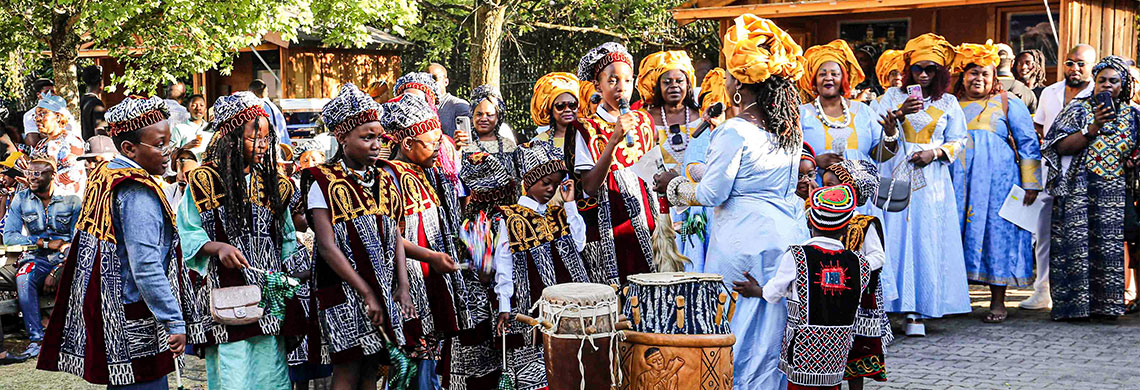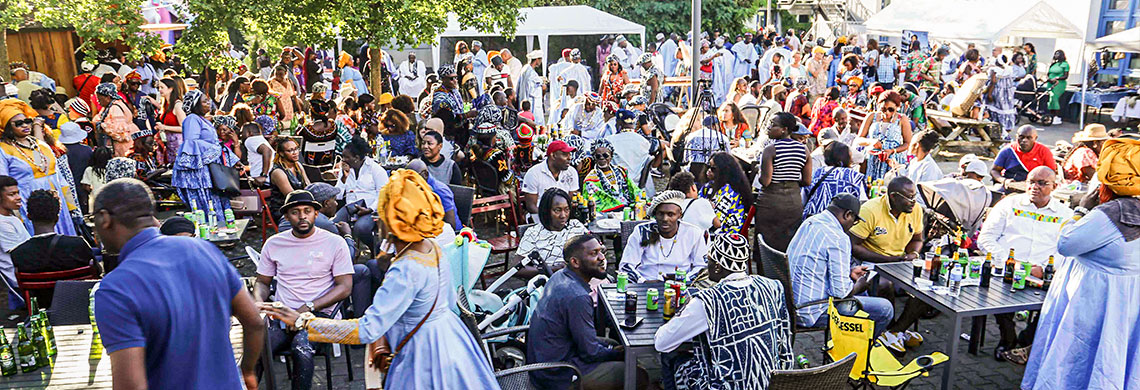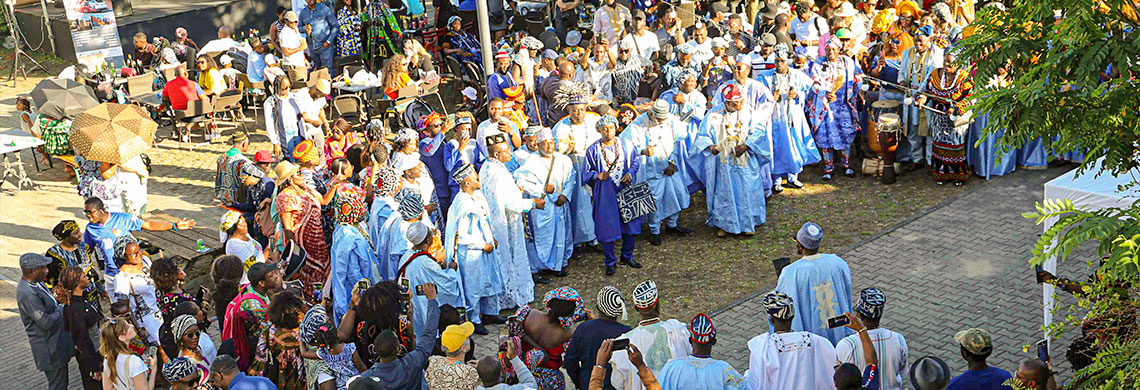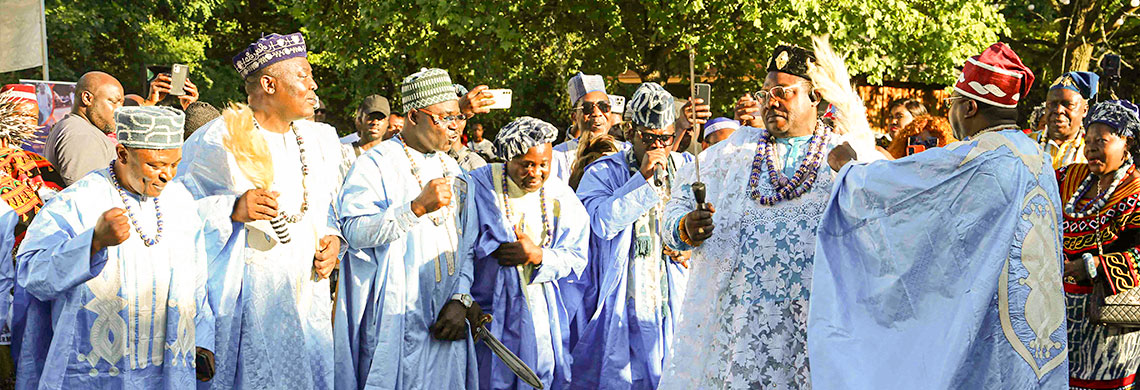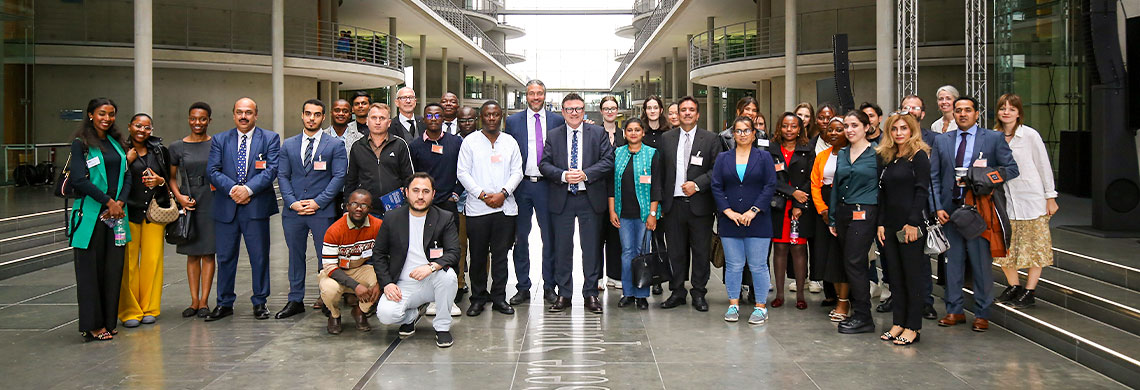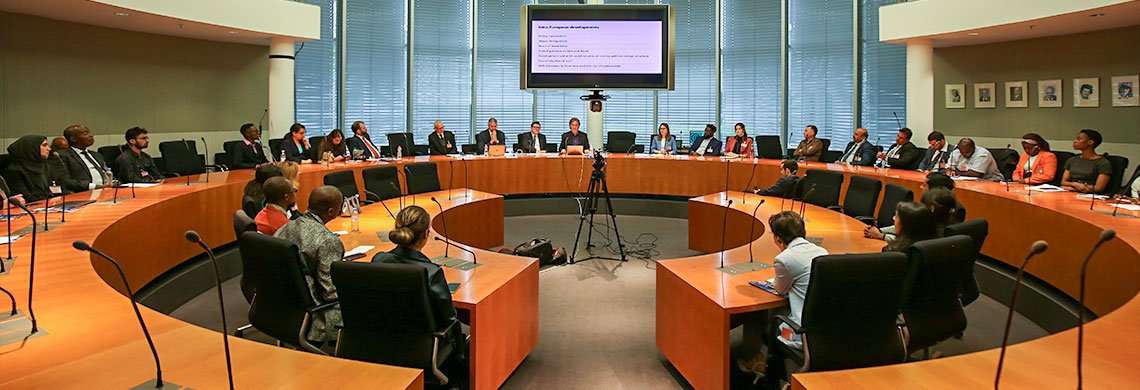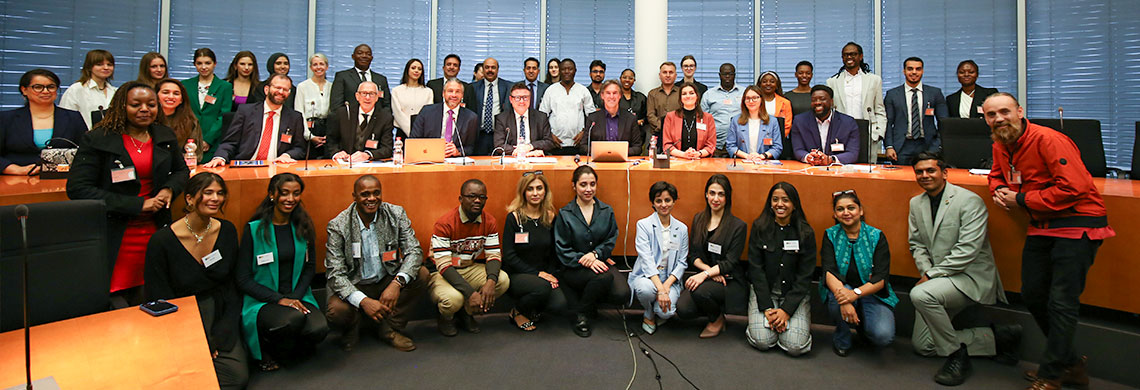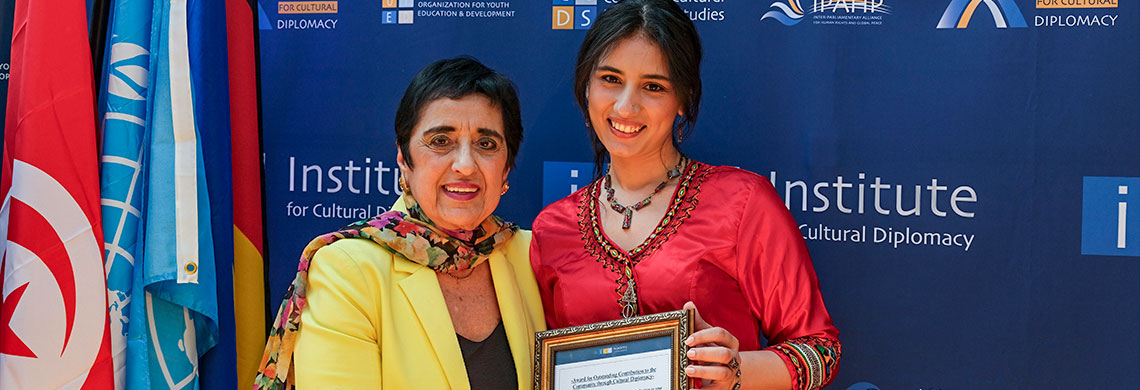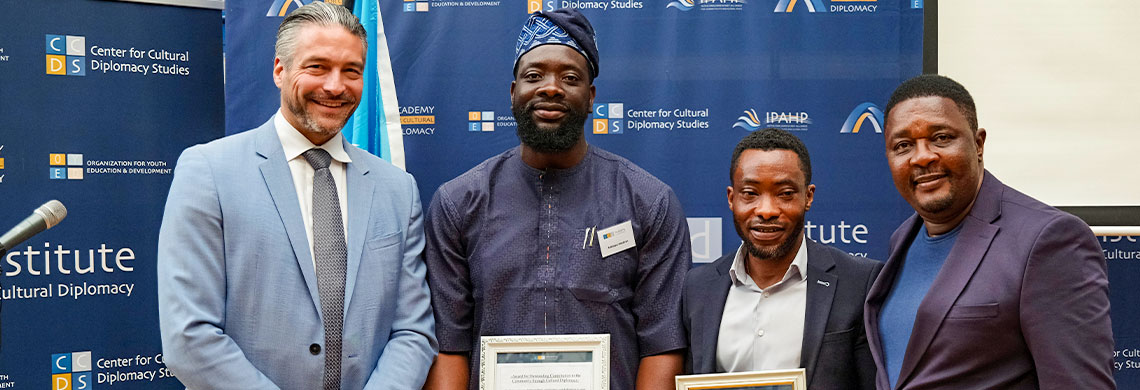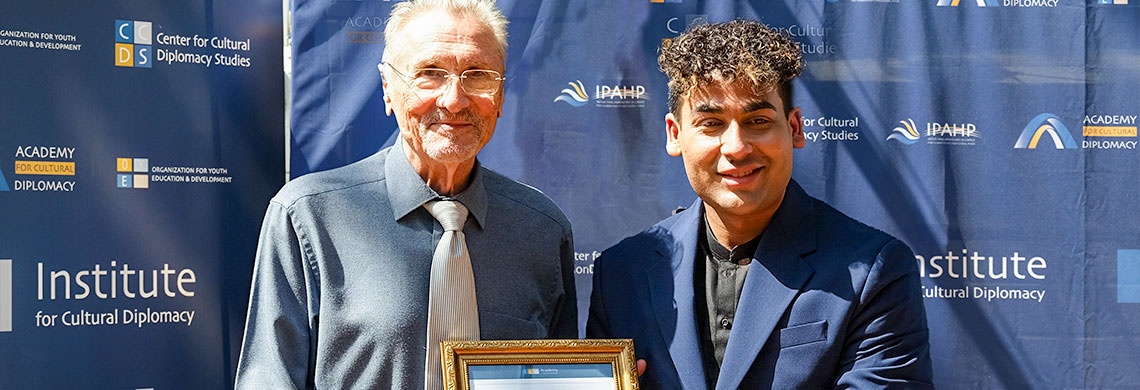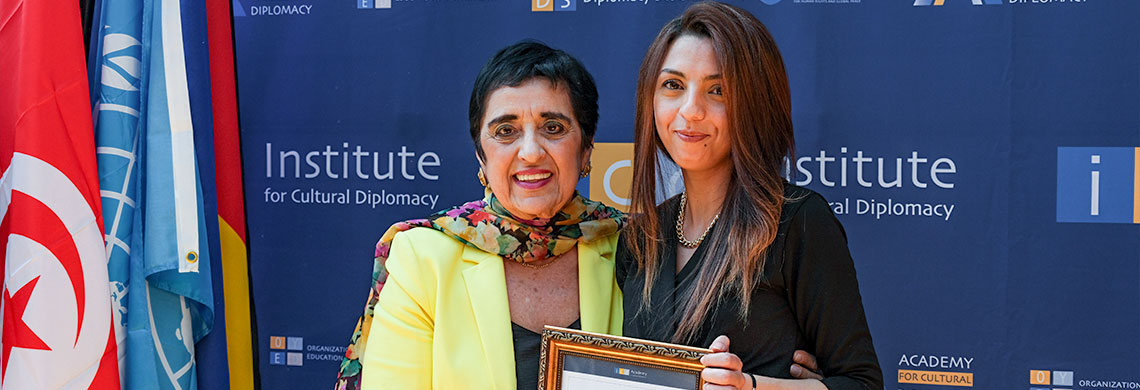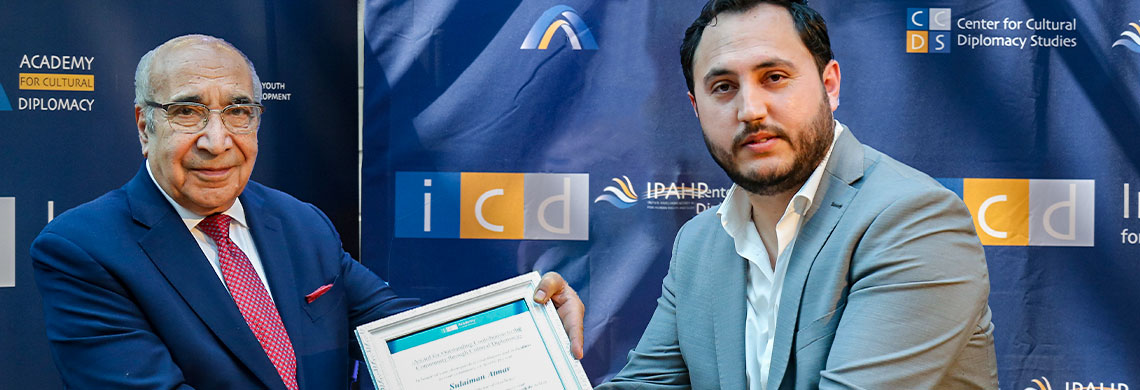Young Leaders´ Forums
Art as Cultural Diplomacy
Arts as Cultural Diplomacy: A Forum for Young Leaders
(Berlin, 11th-18th July 2010)
Forum Report
The Weeklong Seminar for “Arts as Cultural Diplomacy: A Forum for Young Leaders”, took place in Berlin from 11th – 18th June 2010. The program focused on the following subject: "The Role of the Arts in Shaping Europe’s Future". Additional focus was given to the history and development of cultural diplomacy. The forum speakers included leading figures from the fields of the arts and politics. The participants included young artists and cultural managers with interests in using art to promote intercultural dialogue on a global level. The forum addressed issues such as the role of culture in the process of integrating Europe politically and culturally; how to overcome the challenges of multiculturalism and explore its advantages; European identity and integration; the role of arts in European integration. A specific focus was put on the lives and experiences of European artists working at a continental level.Forum Speakers
Ambassador Karl-Erik Norrman (Secretary General, European Cultural Parliament)Mark Donfried (Director & Founder, Institute for Cultural Diplomacy)
Prof. Hanns-Dietrich Schmidt (Managing Director RUHR.2010 (European Capital of Culture))
Andreas Richter (General Manager, Mahler Chamber Orchestra)
Stephanie Maiwald (Project Co-ordinator, A Soul for Europe)
Stefan Sramkiewicz (Project Director, Kulturfabrik Moabit)
Milena Oda (Writer and playwright (Czech Republic))
Beate Ehlers (Actress and theatre pedagogue, Ballhaus Naunynstr. (Multicultural theatre, Berlin))
Dr. Volker Hassemer (Chairman of the Board of Stiftung Zukunft Berlin)
Matthias Peschke (Head of the European Commission’s Berlin Representation)
Werner Wnendt (Director of the Department for Culture and Communication, German Foreign Office)
Birgitte Tovborg Jensen (Cultural Attache, Danish Embassy)
Alexandrina Panaite (Director, Romanian Cultural Institute, Berlin)
Darius Polok (MitOst, Program "Cultural managers of the Robert Bosch Stiftung)
Prof. Hanns-Dietrich Schmidt (International Relations Commissioner RUHR.2010)
Savina Tarsitano (Visual artist (Italy))
Sophie Röhrig (Program Director, ICD)
Locations
- ICD House of Arts and Culture
- European Commission, Berlin
- German Parliament
- German Foreign Office
- A selection of embassies
- Arthaus Tacheles
- Haus der Kultur der Welt
- Museum Island
- Berlin’s East Side Gallery
Summary of Events
Monday July 12th, 2010: The forum on Arts as Cultural Diplomacy officially started with a series of lectures that lay the ground for the days ahead. The field of Cultural Diplomacy was introduced and the importance of its role in both past and contemporary European politics was also emphasised. The Arts, are to play a pivotal role in shaping the future of Europe. They will allow for the creation of a unified European identity but also help shape the image of Europe, worldwide. European artistic organisations and civil society organisations also presented their work and their role in shaping Europe’s culture.Tuesday July 13th, 2010: Different artists, active at European level, were invited to expose the opportunities and challenges the art community faces today. Although arts have been recognised as a fundamental tool for the promotion of European culture and the integration of heterogeneous societies, as seen through the work of the European Cultural Parliament, artists struggle to maintain their way of life. They deal with both the realities and obstacles, such as nation based regulation and categorisation, despite a desire for a region-wide approach to artistic endeavours.
Wednesday July 14th, 2010: The link between the arts and politics was the central theme of the day. The relationship between the two fields is evident in the city of Berlin. Buildings with a political purpose possess an architecture and interior design that are greatly attentive to the arts. Embassies reflect the political and historical background of their country and contribute to a more positive and accurate image of the nation, both to the rest of Europe and worldwide. Furthermore, the active role of governmental institutions was considered through presentations based on many different schemes and projects, set up in order to foster fruitful international relations.
Thursday July 15th, 2010: The work and impact of national cultural institutes established in other nations was presented. They have been found to be very effective in fostering understanding between regions, originally both historically and geographically divided such as East, West and Central Europe. The ideas and objectives behind the “European Capital of Culture” project were also presented to the participants, illustrated by a case study on the Ruhr and the benefits and challenges the region will experience, having been granted the title for 2010.
Friday July 16th, 2010: After visiting Berlin’s famous East Side Gallery, some participants presented papers and personal research on the role of the arts in cultural diplomacy. They ended the forum with a workshop focused on “Drafting a Young Peoples European Cultural Parliament”, which triggered fruitful interaction and served as a concluding session to the debates and themes addressed during the conference.
Monday July 12th, 2010
Central Daily Themes- Although there are many different definitions of cultural diplomacy, cultural diplomacy has held a crucial role throughout European history. The understanding of its practice is pivotal because it shapes contemporary world politics for the maintenance of peace and stability.
- The European Cultural Parliament aims to foster better European state relations. By integrating multi-cultural societies both internally and with each other, the aim is to create unity within Europe through the drafting of a common identity.
- The European Union also has the ambition to attract interest, promote a positive image worldwide and be viewed as a strong political and geographical union.
- The way a country or continent is perceived abroad will shape these entities’ economic and political future in the contemporary globalised world.
- Arts play an invaluable role to play in order to make individuals from different cultures and nations feel part of a larger community which transcends the European borders.
- European-wide touring arts organisations are a good example of how the arts can promote intercultural dialogue as they are committed to the European level of thinking.
- The European Art Community is also an ambassador of the European Union and represents the continent to the outside world.
- Every art form is a language, and can act as a representation of a culture. In artistic communities, nationalities and origins are irrelevant as it is the art and the talent of the artists that matter.
- Europe promotes a bottom up strategy to its cultural integration. This allows people to interact and formulate opinions on a creative basis rather than a strategic basis and they can thus play an active role in the creation of a “European Spirit”, instead of having an image designed and imposed from above.
- Integrating national histories is also a powerful means to foster intercultural dialogue. Politics and economics will not be sufficient if Europe wishes to become a true union. It must also take into account its history, heritage and diversity.
Tuesday July 13th, 2010
Central Daily Themes- There are a large number of cultural venues in the city of Berlin. They host many cultural events and make art available to a wide range of individuals.
- These venues are a platform for dialogue in multicultural societies where differentiation and racism still occur.
- The possibility of dialogue helps the integration of different cultural communities in cosmopolitan locations.
- Europe generally and the European Cultural Parliament in particular, wish for European artists to contribute to the future of Europe.
- The ECP works in close contribution with artists throughout Europe in order to connect different national networks on a continental level.
- Artists still face many challenges in contemporary Europe. Indeed, they are increasingly categorised by nation, type of art, or genre, which greatly limits their freedom.
- The lack of common regulation between European nations in terms of rights for photography, painting and exhibiting artwork for instance, is also a major obstacle.
- The artists’ daily life is unstable due to irregular earnings.
- Europe should develop strategies to protect and support its artists so that they can contribute in an optimal way to Europe’s identity.
- Unified policy and regulation would also give artists more free-range to explore the different ways in which they can play an active part in these projects.
Wednesday July 14th, 2010
Central Daily Themes- The cultural policy of the German Government shows the inter-linking between arts and politics.
- The architecture of the city of Berlin is marked by the political climate throughout time, notably with regards to the Bundestag and Pariser Platz.
- The EU Commission plays an important role in the field of arts and has put into place many funding schemes for cultural activities and events throughout Europe.
- Contemporary media is very influential in international relations: according to a BBC poll, today, Germany is viewed in a very positive light.
- Media thus shapes to a large extent the opinion of its audience and therefore must remain truthful and unbiased.
- The country has set up an extensive list of projects abroad such as scholarships for students in order to foster cultural exchanges and understanding.
- Embassies are also an opportunity for nations to present their culture and history abroad.
- They also take part in the lives of their nationals in foreign countries and thus work at the intersection of two nations.
- The Nordic Embassy Complex in Berlin for example, has all the embassies of the Nordic countries grouped together in one building, equipped with a public space for cultural events, such as readings, exhibitions, concerts, film screenings etc.
- Its home country inspires the architecture of each embassy. Therefore, the complex acts as a cultural representation of the different Nordic nations.
Thursday July 15th, 2010
Central Daily Themes- Many nations have found the establishment of cultural institutes around the world as a helpful tool to promote their culture abroad.
- A good example is the invaluable work the Romanian Cultural Institute does in Berlin. Its activities are centred on organising cultural events with participants both from Germany and Romania in order to enhance dialogue between the two nations and their populations.
- Undertaking the cultural integration of Europe’s member countries also faces the challenge of nations being historically or culturally divided from within.
- In order to forge an inclusive European identity, nations must acknowledge, understand and reconcile their internal diversity.
- The long-standing division between East and West Berlin for instance, and the geographical differentiations between Western/Eastern/Central Europe are obstacles that must be comprehensively overcome. Different strategies and schemes must be evaluated and put in place at a continental level in order to strengthen cooperation between East and West.
- The cultural region of the Ruhr was given the title of “Cultural Capital” in 2010. Although not traditionally considered a cultural region but perceived in the rest of Germany and worldwide as an industrial centre, being the European Capital of Culture has meant the development of tourism in the region.
- The Capital of Culture has received approximately €17 million funding from the German Government. The committee has also made use of its industrial heritage and has been encouraging public participation in cultural projects.
- The “Cultural Capital” project offers many opportunities and challenges for European cities to change their image worldwide, build up networks and attract tourism as well as increase both migration and economic activity.
- The main challenge is to ensure that the lessons and benefits this title brings, outlive its yearly term and become sustainable for the region’s future.
- The financial aspects of the European Capital of Culture are also an element that must be borne in mind, as the designated city will have to invest strategically in this large-scale project for the results to be successful and sustainable.
Friday July 16th, 2010
Central Daily Themes- In discussing the role of the arts in politics, it is crucial to consider the role that art has played in Europe’s tormented past, marked by wars, economic meltdowns and ruthless dictatorships.
- Arts have been extensively used for persuasion: indeed, they were the main tools for propaganda, notably for the USSR, Nazi Germany and the Cold War.
- Europe must remain prudent in using arts to draft its identity for itself and abroad.
- The arts must remain a truthful and comprehensive representation of the continent, honest about its past and hopeful for its future.
- Artistic forms will help shape Europe’s future.They are also an excellent tool to help Europe accept and learn from its past political, economic and cultural crises and conflicts.
- Berlin’s East Side Gallery shows how the artistic community can represent the past in creative and innovative ways.
- This type of project is helpful for next generations to understand historical events and perceive them in a new and constructive light.
- The creation and establishment of a Young European Cultural Parliament would be pivotal in involving younger generations in the formation of the European Spirit.
- The bottom-up approach would once again be reinforced as they will feel de facto integrated in a homogeneous European culture and will therefore contribute to the promotion of Europe’s image abroad.

